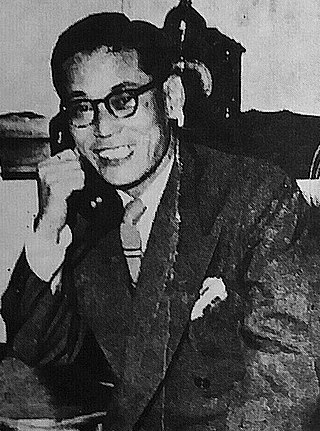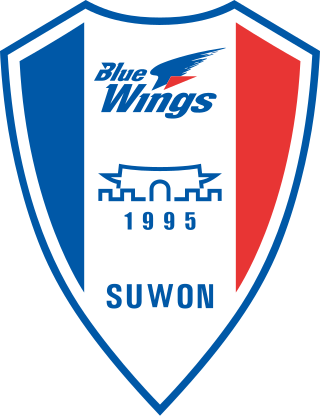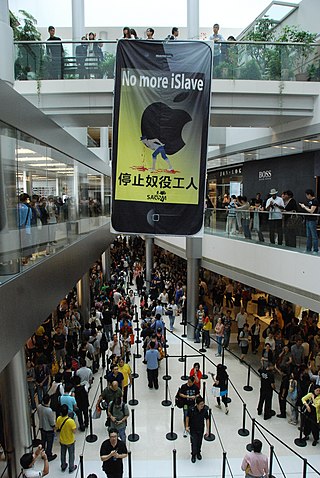Related Research Articles
A trade union or labor union, often simply referred to as a union, is an organization of workers whose purpose is to maintain or improve the conditions of their employment, such as attaining better wages and benefits, improving working conditions, improving safety standards, establishing complaint procedures, developing rules governing status of employees and protecting and increasing the bargaining power of workers.

Strike action, also called labor strike, labour strike in British English, or simply strike, is a work stoppage caused by the mass refusal of employees to work. A strike usually takes place in response to employee grievances. Strikes became common during the Industrial Revolution, when mass labor became important in factories and mines. As striking became a more common practice, governments were often pushed to act. When government intervention occurred, it was rarely neutral or amicable. Early strikes were often deemed unlawful conspiracies or anti-competitive cartel action and many were subject to massive legal repression by state police, federal military power, and federal courts. Many Western nations legalized striking under certain conditions in the late 19th and early 20th centuries.
Collective bargaining is a process of negotiation between employers and a group of employees aimed at agreements to regulate working salaries, working conditions, benefits, and other aspects of workers' compensation and rights for workers. The interests of the employees are commonly presented by representatives of a trade union to which the employees belong. A collective agreement reached by these negotiations functions as a labour contract between an employer and one or more unions, and typically establishes terms regarding wage scales, working hours, training, health and safety, overtime, grievance mechanisms, and rights to participate in workplace or company affairs. Such agreements can also include 'productivity bargaining' in which workers agree to changes to working practices in return for higher pay or greater job security.

Lee Byung-chul was a South Korean businessman who founded the Samsung Group, the country's largest chaebol (conglomerate). Lee founded Samsung in 1938, at the age of 28. He is recognized as the most successful business magnate in South Korea's history.

The Suwon Samsung Bluewings are a South Korean football club based in Suwon that competes in the K League 2, the second tier of South Korean football. Founded in December 1995, they have won the K League on four occasions, as well as the Asian Club Championship twice, in 2000–01 and 2001–02.

Union busting is a range of activities undertaken to disrupt or weaken the power of trade unions or their attempts to grow their membership in a workplace.

The history of union busting in the United States dates back to the Industrial Revolution in the 19th century. The Industrial Revolution produced a rapid expansion in factories and manufacturing capabilities. As workers moved from farms to factories, mines and other hard labor, they faced harsh working conditions such as long hours, low pay and health risks. Children and women worked in factories and generally received lower pay than men. The government did little to limit these conditions. Labor movements in the industrialized world developed and lobbied for better rights and safer conditions. Shaped by wars, depressions, government policies, judicial rulings, and global competition, the early years of the battleground between unions and management were adversarial and often identified with aggressive hostility. Contemporary opposition to trade unions known as union busting started in the 1940s, and continues to present challenges to the labor movement. Union busting is a term used by labor organizations and trade unions to describe the activities that may be undertaken by employers, their proxies, workers and in certain instances states and governments usually triggered by events such as picketing, card check, worker organizing, and strike actions. Labor legislation has changed the nature of union busting, as well as the organizing tactics that labor organizations commonly use.

Cart is a 2014 South Korean drama film directed by Boo Ji-young about employees of a retail supermarket who band together when the contract workers are laid off, it is both an ensemble drama and a social critique.
Samsung, a Korean electronics company, began producing semiconductors in 1974 and has grown to become one of the largest semiconductor fabricators in the world. In the decades following Samsung's entrance into semiconductor fabrication, many of its workers developed serious illnesses, including leukemia, lymphoma, and multiple sclerosis (MS). Beginning in 2007, the families of the impacted workers, with the help of a variety of domestic and international organizations, organized and mobilized against Samsung in the form of various protests and legal challenges. This organized opposition lasted for over a decade and largely concluded upon the signing of a binding settlement agreement between Samsung and the relevant opposition leader. Additionally, Samsung issued a public apology and acceptance responsibility for causing an increased risk of serious illness in its semiconductor factories.
Tensions between the multinational technology company Google and its workers escalated in 2018 and 2019 as staff protested company decisions on a censored search engine for China, a military drone artificial intelligence, and internal sexual harassment.

Mystic Pop-up Bar (Korean: 쌍갑포차) is a 2020 South Korean television series starring Hwang Jung-eum, Yook Sung-jae and Choi Won-young. Based on the Daum webtoon Twin Tops Bar by Bae Hye-soo, it is the first series to air on JTBC's Wednesday–Thursday time slot in eight years. The series aired from May 20 to June 25, 2020.

Some warehouse workers of Amazon, the largest American e-commerce retailer with 750,000 employees, have organized for workplace improvements in light of the company's scrutinized labor practices and stance against unions. Worker actions have included work stoppages, and have won concessions including increased pay, safety precautions, and time off. There are unionized Amazon workers in the United States, Italy and Japan with further unionization activity elsewhere in Europe.
A tech union is a trade union for tech workers typically employed in high tech or information and communications technology sectors. Due to the evolving nature of technology and work, different government agencies have conflicting definitions for who is a tech worker. Most definitions include computer scientists, people working in IT, telecommunications, media and video gaming. Broader definitions include all workers required for a tech company to operate, including on-site service staff, contractors, and platform economy workers.

Alphabet Workers Union (AWU), also informally referred to as the Google Union, is an American trade union of workers employed at Alphabet Inc., Google's parent company, with a membership of over 800, in a company with 130,000 employees, not including temps, contractors, and vendors in the United States. It was announced on January 4, 2021 with an initial membership of over 400, after over a year of secret organizing, and the union includes all types of workers at Alphabet, including full-time, temporary, vendors and contractors of all job types.

The Campaign to Organize Digital Employees or CODE-CWA is a project launched by the Communications Workers of America to unionize tech and video game workers in January 2020. It sprung out of conversations with Game Workers Unite (GWU) and employed at least two full time staff, including GWU co-founder Emma Kinema and veteran SEIU organizer Wes McEnany. In 2022, Jessica Gonzalez joined, a former Activision Blizzard QA tester.

Apple Inc. workers around the globe have been involved in organizing since the 1990s. Apple unions are made up of retail, corporate, and outsourced workers. Apple employees have joined trade unions and or formed works councils in Australia, France, Germany, Italy, Japan, the United Kingdom and the United States.

As of October 2024, over 11,000 workers at 500 Starbucks stores in at least 40 states in the United States have voted to unionize, primarily with Workers United. Workers United and Starbucks have been engaged in negotiations over a national collective bargaining agreement since February 2024. This unionization effort started at a store in Buffalo, New York. About a third of Starbucks' Chilean workforce is already unionized, as well as 450 workers in New Zealand and eight stores in Canada. The longest Starbucks strike lasted 64 days, took place in Brookline, Massachusetts in September 2022 and resulted in the unionization of the employees at that location.

Tesla, Inc. is an American electric car manufacturer which employs over 140,000 workers across its global operations as of January 2024, almost none of which are unionized. Tesla CEO Elon Musk has commented negatively on trade unions in relation to Tesla. Despite allegations of high injury rates, long hours, and below-industry pay, efforts to unionize the workforce have been largely unsuccessful. There are active labor disputes with Tesla in the United States, Germany and Sweden.

Microsoft recognizes 8 video game unions representing 2,000 video game workers. Microsoft like other tech companies, has historically resisted unions and relied on temporary workers with lower pay and job security than regular employees. This shift began in 2015 and accelerated in 2022 when Microsoft acquired Activision Blizzard. To expedite the approval process, Microsoft signed a labor neutrality agreement with Communications Workers of America. This agreement guarantees that Microsoft will not interfere with or oppose union organizing efforts. It applies to both of its video game subsidiaries, Activision Blizzard and ZeniMax Media. Other unionization efforts at TaxSaver Software and Lionbridge have been unsuccessful.
References
- ↑ "Fast Facts: Samsung Global Newsroom". Samsung Electronics . Retrieved 7 July 2020.
- ↑ "[Special report- Part V] Samsung has come under fire worldwide for its union-busting tactics". The Hankyoreh . 26 June 2019. Archived from the original on 27 June 2019.
- ↑ "Samsung VP gets jail term for attempting to break up labor union". Yonhap News Agency . 13 December 2019. Archived from the original on 15 December 2019.
- 1 2 Mollan, Cherylann (19 September 2024). "Tamil Nadu: Why hundreds of Samsung workers are protesting in India". BBC News . Retrieved 19 September 2024.
- ↑ Paramasivam, Praveen (10 September 2024). "Indian strike hits Samsung production at key electronics plant". Reuters .
- 1 2 Yun, Aelim (August 2017). "Rebuilding Workers' Power Beyond Corporate Boundaries in South Korea" (PDF). Friedrich Ebert Foundation . pp. 1–14.
- 1 2 Hwang, Ye-rang (30 May 2014). "[Reportage] A worker's body is stolen". The Hankyoreh English Edition . Retrieved 17 November 2022.
- ↑ Se-Woong, Koo (8 July 2014). "South Korea: Striking Samsung workers prevail despite climate of repression". Equal Times . Retrieved 28 July 2024.
- ↑ Kim, Bo-eun (12 August 2021). "Samsung signs collective agreement with unions ahead of leader's release". Korea Times . Retrieved 10 July 2024.
- ↑ Sang-hun, Choe (6 May 2020). "Samsung Heir Apologizes for Corruption and Union-Busting Scandals". The New York Times . Archived from the original on 6 May 2020.
- 1 2 Eun-jin, Kim (1 August 2024). "Samsung Electronics Union Calls Off Strike amid Looming Expiry of Bargaining Rights". Business Korea. Retrieved 4 August 2024.
- 1 2 Young, Jin Yu; Tobin, Meaghan (6 June 2024). "Samsung Workers Strike, the First in the Company's History". The New York Times. ISSN 0362-4331 . Retrieved 10 July 2024.
- ↑ Seo, Yoonjung Seo; Madhok, Diksha (7 June 2024). "Workers at Samsung Electronics go on strike for the first time ever". CNN . Retrieved 10 July 2024.
- ↑ Young, Jin Yu; Liu, John (10 July 2024). "Samsung Union Workers Launch Indefinite Strike". The New York Times. ISSN 0362-4331 . Retrieved 10 July 2024.
- ↑ Ji-Han, Yoo; Jae-eun, Lee (2 August 2024). "Samsung Electronics union ends 25-day strike, shifts to new tactics". The Chosun Daily . Retrieved 2 August 2024.
- ↑ Eun-jin, Kim (1 August 2024). "Samsung Electronics Faces Ongoing Strike as Wage Negotiations Fail". Business Korea. Retrieved 4 August 2024.
- ↑ Young, Jin Yu (5 August 2024). "Samsung Employees Return to Work After Strike Fails to Win Concessions". The New York Times . ISSN 0362-4331 . Retrieved 1 September 2024.
- ↑ Yi, Wonju (13 August 2024). "Unionized workers at Samsung Electronics to launch 4-day strike". Yonhap .